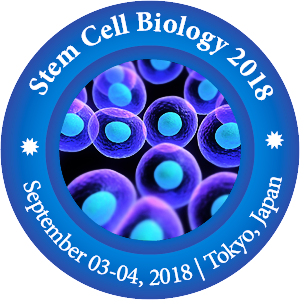
Chandravanshi Bhawna
School of Regenerative medicine, GKVK Post, Bellary Road, Yelahanka, Bangalore
Title: Stem cell therapy facilitates tolerance in renal transplantation
Biography
Biography: Chandravanshi Bhawna
Abstract
The auto-immune destruction of pancreatic β cells leads to occurrence of Type 1 diabetes. Two main therapeutic approaches for the treatment of T1D are islet transplantation and exogenous insulin injection. However both the approaches have not attained significant success. One of the main reasons for the decline in the success of islet transplantation is the shortage of donor pancreas and their poor survival upon transplantation. Hence in the present study we generated ample number of islet like cell aggregates ( ICAs) from Wharton’s jelly mesenchymal stem cells (WJ-MSC) as published earlier and stored them at ultra low temperature (-196ËšC) employing a cocktail of small molecules (Eicosapentaenoic acid+Docosahexaenoicacid+Metformin)) in addition to 5% DMSO. The ICAs were revived after 30days, cultured for 24h and then were assessed for their viability, oxidative status and functionality. The viability was determined by MTT and FDA/PI assay and it was found that the combinations of small molecules maintained the viability by 4fold when compared to controls Further the small molecules guarded the islets against oxidative stress and hence significantly reduced total ROS (p<0.05) (55% reduction), superoxide ions (p<0.05) (65% reduction) and nitric oxide (p<0.01) (70%) free radicals. The expression of HIF1α was also enhanced in the presence of small molecules. There was significant down-regulation of the stress markers like CHOP, NOS2a and IL1β, apoptotic markers like p53 and Caspase 3.Further this was confirmed by western blot analysis where we found down-regulation of Caspase 3 and phosphor p38 and up-regulation of anti-apoptotic marker, BCl2. Finally the ICAs also responded to glucose and showed significant enhancement in insulin secretion in presence of high glucose (5 fold). Hence our data demonstrates for the first time that a cocktail of small molecules with only 5% DMSO protect islets against cryo injury thus opening new dimension for islet banking prior to transplantation.

